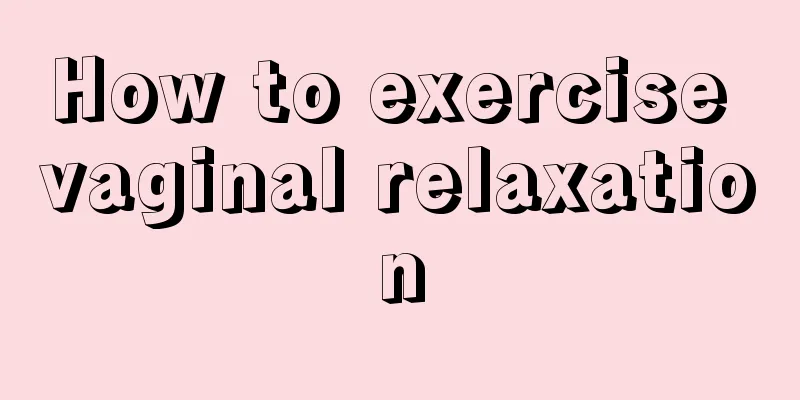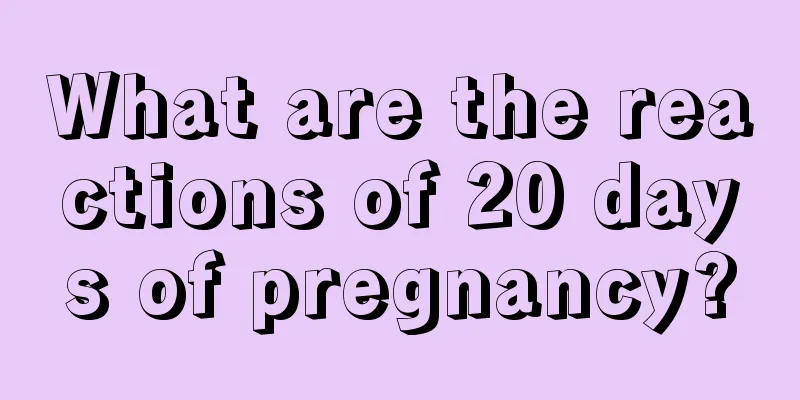Can I go out ten days after a hysterectomy?

|
The uterus is a unique organ of the female body and is closely related to women's health. In daily life, women must pay attention to the care of the uterus, and pay special attention to both living habits and eating habits. Once the uterus is suffering from a disease, it is necessary to actively seek treatment. If the hysterectomy is caused by some special reasons, women should pay attention to the care of their bodies after the operation. Can I go out ten days after a hysterectomy? Ten days after hysterectomy, your body has not yet fully recovered. At this time, you should avoid going out, try to rest more at home, and eat a light diet. If you have undergone a hysterectomy due to certain diseases, it is recommended to pay attention to the following care: 1. Abdominal wound care: Whether it is an open surgery or a minimally invasive surgery, there will be wounds on the abdomen. It is recommended to change the dressing in time and do not get the dressing wet to avoid wound infection. 2. For perineal care, it is recommended to clean the perineum with iodine twice a day to avoid infection by pathogens. 3. You cannot have sexual intercourse within 2 months, and you cannot sit in a basin to take a bath. You can only take a shower. 4. If you have a cough or constipation, seek prompt treatment to avoid sagging of pelvic organs due to increased abdominal pressure. Hysterectomy sequelae (1) Ovarian dysfunction Before menopause, the endocrine system between the uterus and ovaries maintains a precise and delicate dynamic balance. Hysterectomy will inevitably disrupt this balance and may cause ovarian function to decline, resulting in earlier and more obvious menopausal symptoms. (2) Increased urinary system symptoms The female urinary system is homologous to the reproductive system and is both an estrogen-dependent organ. After hysterectomy, the estrogen level decreases, which can cause the elastic tissue around the urethra to thin and lead to urinary incontinence. The urethral mucosa atrophies and the resistance decreases, which can easily induce urinary tract infection and cause a series of urinary tract irritation symptoms such as frequent urination, urgency, and pain when urinating. Domestic data show that more than 40% of women experience urinary system symptoms after hysterectomy, which is significantly higher than that of women with natural menopause and healthy women. (3) Prone to concurrent depression symptoms The endocrine regulation of the uterus and ovaries forms a feedback system with the central nervous system. After hysterectomy, this feedback loop is disrupted. In particular, when estrogen levels drop, it interferes with the normal secretion and metabolism of central neurotransmitters, thus forming the material basis for the generation of mental symptoms. |
<<: Pregnant women with sensitive sense of smell, is it a boy or a girl?
>>: What are the side effects of taking painkillers for dysmenorrhea
Recommend
I just had an abortion and I'm pregnant again
For women, if they have an abortion, they can res...
Will I bleed two days before the abortion?
Before undergoing medical abortion, women must fu...
Snacks to eat during breastfeeding
Almost every female friend likes to eat snacks, b...
How to prepare for pregnancy with a history of ectopic pregnancy
For patients who have had ectopic pregnancy befor...
Is it good to wash your vulva with toothpaste?
Regarding the treatment of female genital itching...
If you have sex during the same month, the pregnancy will be a boy
If a woman's fallopian tubes are not unobstru...
How to trim eyebrows, do you know these steps?
In order to make themselves more elegant, every f...
Six months pregnant, always urinating
The sixth month of pregnancy is a relatively stab...
Symptoms of endocrine disorders and menstrual disorders
Disorders in the endocrine system are one of the ...
How many hours to visit Zhangye Colorful Danxia? When is the best time to see Zhangye Colorful Danxia?
Danxia landform is a very unique natural landform...
What causes vaginal urination pain?
Everyone knows that women’s health is often harme...
Can ovulation bleeding lead to pregnancy?
Ovulation period is knowledge that female friends...
Uterine fibroids diet, do you know the correct way to eat?
If you unfortunately suffer from uterine fibroids...









